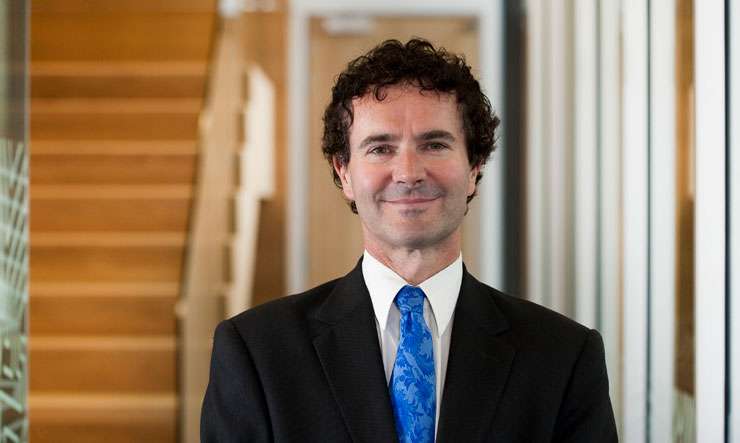The housing market is going great guns but some economists are warning that even though June was a strong month for sales and prices there is still some likely pain ahead.
Most point to pent-up demand stemming from the halt on transactions during the lockdown as a contributing factor to high sales figures and prices, in combination with income support measures and low interest rates.
Dominick Stephens, Westpac chief economist, says house prices are tracking as he expected and he is still forecasting a seven per cent decline over the final three quarters of this year, saying prices already slightly declined in June. “It normally takes quite a bit of time for things to pan out in a housing market. That said, I do have to admit the sales numbers for June were quite a bit stronger than I anticipated.”
Start your property search
But just about every area of the economy has performed better than anticipated, he says. “Unemployment hasn’t risen as far as expected, consumer spending hasn’t dropped as far as expected and the price of the key products we sell to the rest of the world has held up well.”
The country came out of lockdown earlier than expected and the virus has not impacted economic activity as severely as it might have.
Stephens says there is an element of catch-up spending going on, but says this isn’t the so-called “revenge spending” phenomenon talked about when China came out of lockdown and some people were said to have spent big on some luxury items. “I think perhaps the wage subsidies and Government money sloshing around in the system has to come out somewhere. The Government has borrowed an awful lot and stimulated the economy and that money is being spent,” he says.
Reality check
The key for the economy is whether the virus re-emerges, as it has in Melbourne.
“If that doesn’t happen, I think what I was always expecting was a period of lockdown, a quite aggressive emergence from lockdown and then a period where growth is hard to come by, layoffs are frequent and the reality of having no international tourism market bears its way through the economy, and a long, hard, cold reality check for the economy.”
Stephens is not expecting a second wave of economic damage, however, unless there is a second wave of infections, but says it may still “feel” like a second wave of economic damage. “Layoffs, for example, have barely begun, it’s just they tend to come late during recessions.”
Economist Tony Alexander also rules out revenge spending as being a factor in the current hot housing market. In fact, revenge spending didn’t translate to the housing market and was hardly noticeable in retail, he says.
Bigger factors are at play in the housing market, he says, pointing out this is not a normal recession.

Westpac chief economist Dominick Stephens: "Layoffs have barely begun."
Usually in a recession, for example, demand for lifestyle blocks goes down but instead seems to have gone up with more people thinking about how they want to live and factoring in working from home. Also contributing to the strong market is a wealth of insulating factors, such as, the country going into the crisis with low interest rates which are even lower now.
In other recessions people have been wary of buying because of rising interest rates but in this one “not a single soul is fearful of that”, he says.
The country also went into the crisis with a listings shortage and that’s still there with some Kiwis choosing to do up their houses rather than list them.
The ones who didn’t leave and the ones who have come home leads to higher demand for housing, and Alexander even points to “cultural cringe” as impacting the market. “We used to focus this on if the British were noticing us and we’d flock to the streets if a member of the Royal Family was visiting,” he says.
“Well, now we feel well up ourselves because we have eliminated Covid-19 in the community and we have convinced ourselves the rest of the seven billion people on the planet would like to be here.”
This feeds into the market from people thinking they better get on and buy before the borders reopen.
Frustrated buyers
Another factor is even though banks are reticent to lend, according to Alexander’s survey of mortgage advisers, the buyers are still out there. “The tighter the banks are now the longer the queue of frustrated buyers gets, and they were there before going into lockdown, they’re there now and it’s getting even longer for when eventually the banks lend more,” he says.
Alexander has adjusted his view on how low house prices will fall, from five to ten per cent initially to the possibility they will start rising before the end of the year, based on the strength of the demand from first home buyers and investors, the lack of listings, and the low interest rates.
On the other hand, he is not prepared to say the worst of the price declines are over with the end of mortgage deferrals and wage subsides looming, and a weak labour market ahead. “But here’s the thing: A, it’s already weak, B, we all know it’s going to be weak and C, it’s not stopping buyers now.”
Mike Jones, a senior economist with the ASB, has just released a housing stocktake titled Doom or Boom in which he sticks to forecasting a “modest” six per cent fall in house prices, and also says Covid’s ill-effects will take some time to filter through into the market.
One of the main reasons for the strong showing in June is the pent-up demand, with transactions on hold largely in May and April. Supply is starting to lift but that will take time to reduce the pressure on prices to rise, Jones says.
June frenzy
“Our view is the June frenzy will fade both in activity and in terms of prices. There’s no doubt June was probably over-inflated to some extent due to that pent-up demand coming out of lockdown and that’s probably giving us an artificially strong read on the housing market,” he says.
“If you look ahead to the next six months the housing market’s going to face some very stiff headwinds from unemployment, which is now very clearly rising, and population is slowing quite rapidly given the net migration has basically stopped.

Tony Alexander: "The tighter the banks are now the longer the queue of frustrated buyers gets."
“Those two macro-factors have always been really important for our housing market so I think the direction for the next six months is certainly down.”
Liz Kendall, a senior economist at ANZ, says this time of year is usually quiet for the property market but the pent-up demand meant an unusually strong bounce in the early winter months.
“And then what potentially is playing out is the underlying trends in the property market have changed, so we have a view that house prices will decline and some weakness will emerge but that is being delayed by the supports that have come through.”
Self-fulfilling prophecy
It’s hard to know how much of the bounce is just volatility, she says. “We think that volatility might continue for the next couple of months and eventually we’ll start to see a bit of downward pressure on sales and prices but it might not happen until we get to the latter part of the year.”
And while sales and prices were good in June, household expectations of house price inflation has “dropped quite dramatically. There is some wariness out there and that will feed into negotiations.”
Then again, it was possible rather than house prices falling, expectations will come back up.
“We don’t know where expectations and reality are going to meet. Something I would be cautious about is whether these expectations for a weaker market start to become a self-fulfilling prophecy as well.”









































































